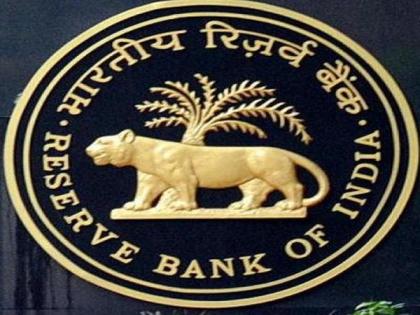RBI cancels registration certificate of Acemoney (India) Ltd due to irregular lending practices
By ANI | Published: April 29, 2024 05:13 PM2024-04-29T17:13:47+5:302024-04-29T17:15:02+5:30
New Delhi [India], April 29 : The Reserve Bank of India (RBI) has taken decisive action against irregular lending ...

RBI cancels registration certificate of Acemoney (India) Ltd due to irregular lending practices
New Delhi [India], April 29 : The Reserve Bank of India (RBI) has taken decisive action against irregular lending practices by cancelling the Certificate of Registration (CoR) of M/s Acemoney (India) Limited, a Non-Banking Financial Company (NBFC) based in North West Delhi, Delhi.
This move comes under the powers conferred by Section 45-IA (6) of the Reserve Bank of India Act, 1934.
The decision to revoke the CoR was made in light of the company's violations of RBI guidelines on risk management and code of conduct in outsourcing financial services, particularly in its digital lending operations conducted through various third-party apps.
Acemoney (India) Limited, which was registered under CoR No. N14.03358 on February 21, 2017, was found to be involved with several mobile apps such as ActLoan, AgMoney, NiceCash, and others.
As per the RBI, the company's actions were in contravention of regulations regarding the charging of excessive interest rates and the protection of customer information.
This step underscores the central bank's commitment to maintaining the integrity of the financial system and protecting the interests of consumers.
The company's registered office address will no longer transact business as a Non-Banking Financial Institution (NBFI), as defined in clause (a) of Section 45-I of the RBI Act, 1934.
The cancellation of Acemoney (India) Limited's CoR highlights the RBI's zero-tolerance approach towards non-compliance with regulatory norms in the financial sector.
Disclaimer: This post has been auto-published from an agency feed without any modifications to the text and has not been reviewed by an editor
Open in app